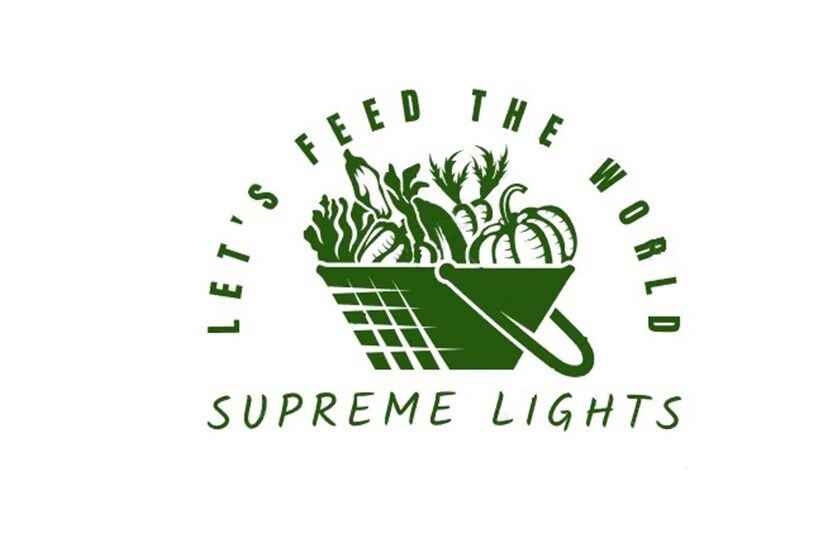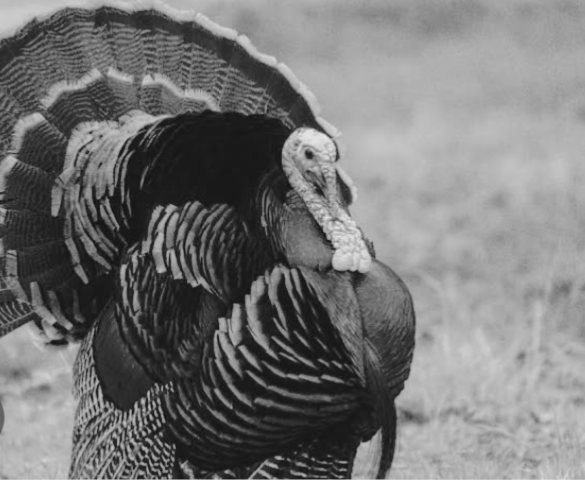
Turkey farming is an alternative to fowl farming. Turkey are raised for meat, egg, and also used as pets (especially the male turkey called tom). The male adult turkey are beautiful to look at especially when their feathers rises as they sight a female hen. They are bigger in size than fowl and they grow very fast. Their eggs are much bigger than that of fowl. But the eggs of fowls are much prefered for commercial purpose than that of turkey. Turkey can lay between 70 to 100 eggs in a year. Turkey meat is one of the leanest of all poultry species this is the reason for its high demand and it is consumed in almost every country across the globally. The meat is a good source of protein, fat, energy, Mineral like potassium, calcium, magnesium, iron, selenium, zinc and sodium, essential amino acids and vitamins like niacin, vitamin B6 and B12. It is rich in unsaturated fatty acids and essential fatty acids and low in cholesterol.
The world’s top turkey producing countries include the United States, Brazil, Germany, France, and Italy.
BREEDS OF TURKEY
Beltsville small white
Bourbon red
Bronze
Black
Narrangasett
Royal palm
Slate
White Holland turkey
TURKEY PARAMETERS
Male turkey (Tom)
Female turkey (hen)
Young turkey (chick)
Maturity period (30 weeks)
Egg production period (24 weeks)
Incubation period (28 days)
Male to female ratio (1 to 5)
TURKEY FARM MANAGEMENT PRACTICE
1. INCUBATION PERIOD: The incubation period of turkey is 28 days. There are two types of incubation in Turkey.
Natural incubation
Artificial incubation
NATURAL INCUBATION: The female turkey sits to warm up the eggs for 28 days
ARTIFICIAL INCUBATION: The eggs of the turkey are collected and sent to the hatchery for where they are set in the incubator for hatching. Fertile eggs would hatch into Young turkey. They farmer. Will collect the young birds for proper care. It also take 28 days for the eggs to hatch in the incubator.
BROODING : There are two ways of brooding in Turkey.
Natural brooding : This is when the mother turkey or hen brood her Young ones.
Artificial brooding : This is when a brooding unit is constructed for the young turkey. The young ones need double hover space compared to chicks. Just like brooding of chicks, the brooding unit must be prepared two days before the arrival of the young. Litter materials like woodshavings should be used to cover the floor. A space of 1.5 Sq. Ft is required per bird. A temperature of 95 oF should be maintained and a reduction of 5 oF shoud be carried out on weekly bases. Feeds in trays and water drinkers should be provided. Newly hatched turkey have poor eye sight therefore might be reluctant to feed and drink. Force feeding should be done for the first week of arrival at the brooding unit. Pre starter turkey feed should be feed. The brooding period is 0 to 4 weeks
After 4 weeks, more ventilated space is require as warming material can be removed. Birds can be feed with starter mesh.
Young turkey need extra protein in their diet. Therefore, during force feeding, 100 ml of milk can be added to 1 litre of water and one egg can be feed per bird for 15 days to supply the extra protein needed. Turkey are fond of green veges, therefore, chopped vegetables should be added to their feed.
The average mortality rate at brooding is 6 to 10%.
GROWER Units : At 6 weeks of age, young turkeys should be transfered from brooding to grower unit. More space of 2.5 Sq. Ft /bird is required. Grower mesh are fed with clean water. Deep litter system or cages are usually employed at this age.
By 16 to 25 weeks old, the turkeys can be raised using free range system or with the Intensive system deep litter system
FREE RANGE SYSTEM: This is the system in which the birds are allowed to forage on their own. They have assess to feeding on insects, worms, kitchen wastes and grasses etc. All these increases their protein intake. This gives reasons why they are called scavengers.
Turkey raised in this system are prone to external and internal parasites. Therefore, regular deworming is required. Also, their environment should be free of predators. Vegetable wastes and compounded feeds can be fed to them to increase productivity.
Biosecutity measures should be put in place to ristrict visitors into the farm.
At night, the turkeys should be driven into their pen.
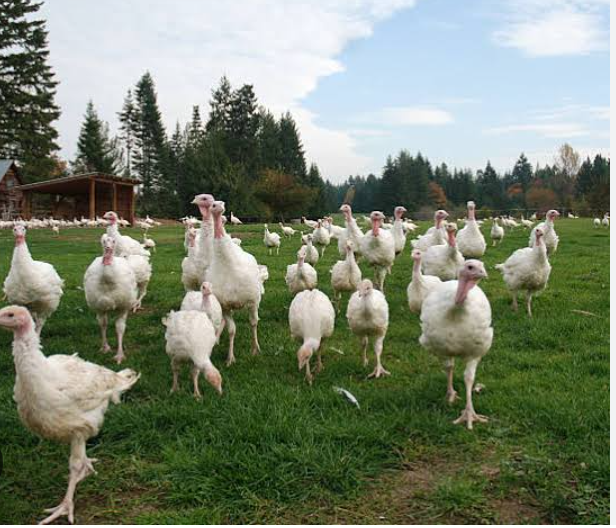
Debeaking: Young ones should be debeaked to control feather picking and cannibalism. Debeaking can be done at a day old or 3-5 weeks of age.
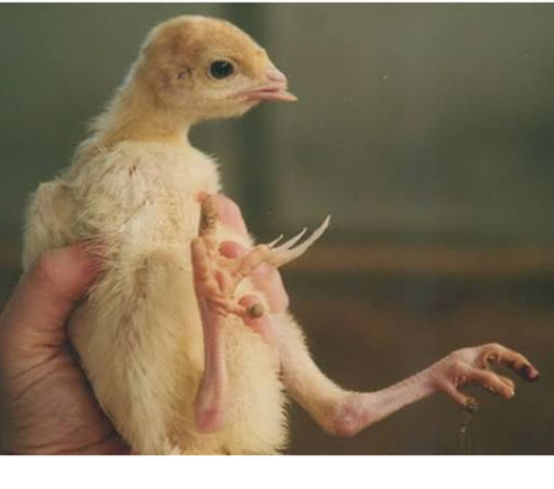
Desnooding: Removal of the snood or dewbill (the fleshy protuberance near the base of the beak) is to prevent head injuries during picking and fighting. The snood can be removed by finger pressure at a day old or at 3 weeks of age, sharp scissors can be used to desnood.
Detoeing or toe clipping: Clipping is done at a day old by removing the nails of the toe.
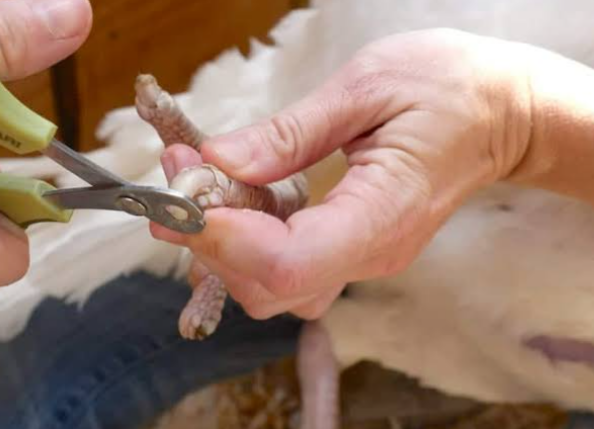
BREEDING PRACTICES
Natural mating
The mating behavior of adult male tom is known as Strut. The male spreads it’s wings and makes a peculiar sound frequently. In natural mating, the male: female ratio is 1:5 for medium type turkeys and 1:3 for large types. On an average 40-50 young ones is expected from each adult female.
Artificial insemination
The advantage of artificial insemination is to maintain high fertility from turkey flock throughout the SEASON. Semen is collected from adult male and introduced into the female hen.
Hand mating: The advantage of these mating is to ensure that mating has occured. In natural mating, the farmer might not be around to be sure that mating has occurred as birds may lay eggs without mating. Such eggs are infertile. Therefore, the farmer assist the male to mount the female hen. This give about 90% fertile eggs compared to natural mating. Though the process is labourous.
COMMON DISEASES OF TURKEY, CAUSES, SYMPTOMS AND PREVENTION
Disease :Arizonosis.
Causes: Salmonella arizona
Symptoms: Poults unthrifty and may develop eye opacity and blindness.
Susceptible age 3-4 weeks
Prevention : Elimination of infected breeder flock, and hatchery fumigation and sanitation.
Disease : Blue comb disease
Causes: Corona virus
Signs/ Symptoms: Depression, loss of weight, frothy or watery droppings, darkening of head and skin.
Prevention : Depopulation and decontamination of farm. Give rest period.
Disease :Chronic respiratory disease
Causes: Mycoplasma gallisepticum
Signs/Symptoms : Coughing, gurgling, sneezing, nasal exudates.
Prevention : Secure Mycoplasma free stock
Disease : Erysipelas
Causes: Erysipelothrix rhusiopathidae
Signs/Symptoms: Sudden losses, swollen snood, discoloration of parts of face, droppy
Prevention : Vaccination
Disease : Fowl cholera
Causes: Pasturella multocida
Signs/symptoms :Purplish head, greenish yellow droppings, sudden death
Prevention : Sanitation and disposal of dead birds.
Disease : Fowl pox
Causes: Pox virus
Sign/symptoms : Small yellow blisters on comb and wattles and scab formation
Prevention : Vaccination
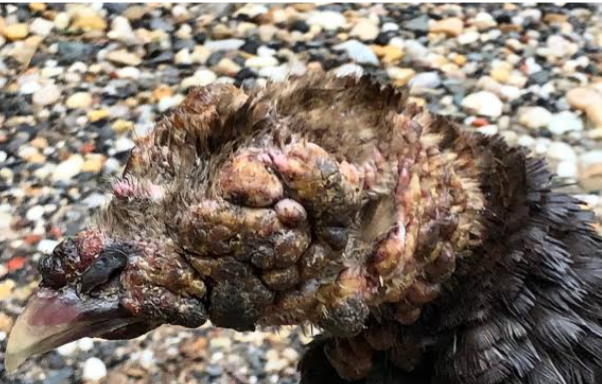
Disease: New Castle disease
Causes: Paramyxo Virus
Signs/symptoms: Gasping, wheezing, twisting of neck, paralysis, soft shelled eggs
Prevention :Vaccination
Disease : Paratyphoid
Causes: Salmonella pullorum
Signs/symptoms : Diarrhea in poults
Prevention : Prevention and flock sanitation
Disease : Turkey coryza
Causes: Bordetella avium
Signs/Symptoms: Snicking, rales and discharge of excessive nasal mucus
Prevention : Vaccination
Disease :Coccidiosis
Causes :Coccidia spp
Signs and symptoms :Bloody diarrhea and loss of weight
Prevention :Proper sanitation and management of litter
Medication or vaccination : It is important for the farmer to consult his or her veterinarian whenever a bird is sick. Non consultation can lead to wipe off of the whole flock. Any sick bird should be isolated from the whole flock so as not to spread the disease.
Marketing
In Nigeria, Male turkeys are usually bigger in size than female hen. The male command higher price three times the price of a broiler. The females are not as expensive as the male because they are smaller in size.
